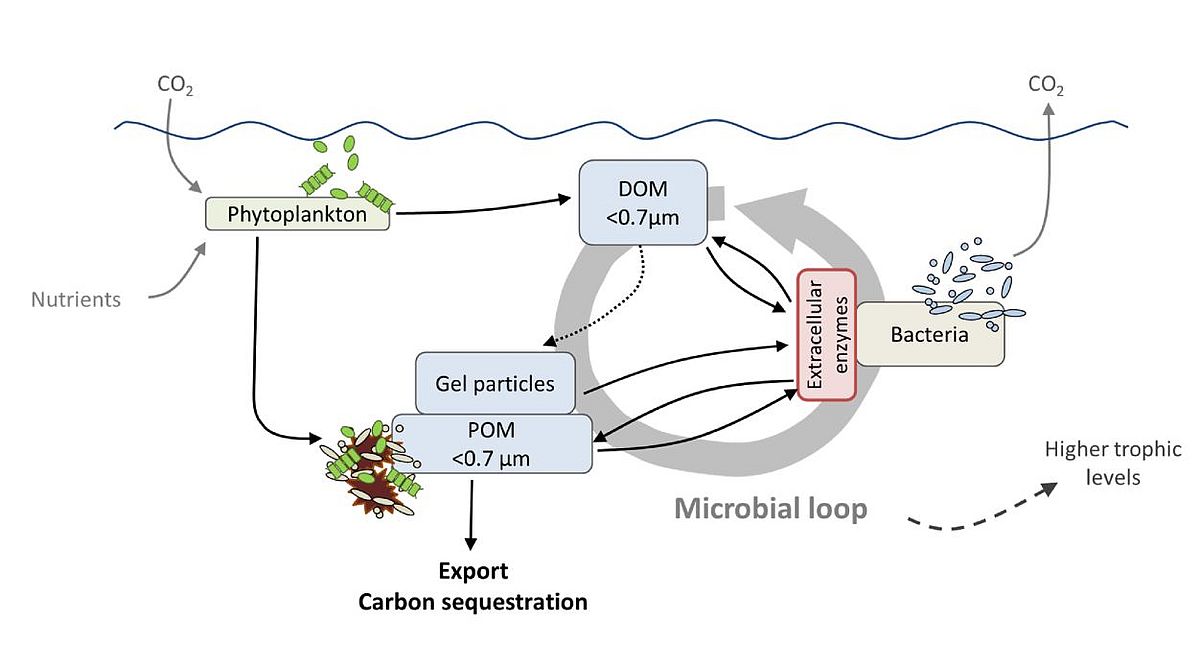Heterotrophic bacteria are the main producers of CO2 in the ocean, thereby counteracting the biological drawdown of CO2 by primary production. The transfer of organic carbon to the deep ocean and the subsequent long term removal of CO2 from the atmosphere are strongly attenuated by heterotrophic recycling processes that regenerate inorganic nutrients and CO2 in the microbial loop. Bacterial activity in the ocean is controlled by multiple abiotic and biotic environmental factors. Major constraints on bacterial growth and activity are temperature and the availability of organic matter and inorganic nutrients. Effects of climate change on heterotrophic processes driven by bacterial activity in the ocean are still largely unknown. Studies conducted in the last decade have shown a high potential of warming and acidification to enhance heterotrophic bacterial activity. Tipping the balance of autotrophic carbon fixation and heterotrophic recycling would have a high potential to change biogenic carbon fluxes in the ocean. Our studies investigate the impact of warming, acidification and deoxygenation on the bacterial turnover of organic matter and aim to identify processes that are potentially sensitive to upcoming changes in the marine environment.



